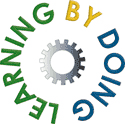What do candidates on the 3 term PID Controller Tuning training course actually do?
Candidates on the 3 term PID controller tuning training course learn about the theoretical aspects of open and closed-loop control systems, but without getting involved in the complex mathematics traditionally used to describe and analyse these systems. Our candidates are shown what the most common electronic controllers typically look like and study their markings and features (for example front panel buttons, sub-assembly cards, internal programming switches, etc). We then show candidates how the controllers should be configured, calibrated and tuned so that they give accurate readings and behave well in dynamic situations, explaining the three terms (proportional, integral and derivative) used in common industrial control systems. Candidates are provided with comprehensive course notes.
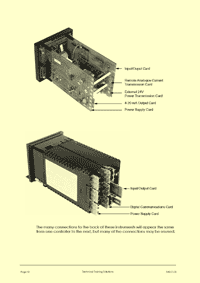 |
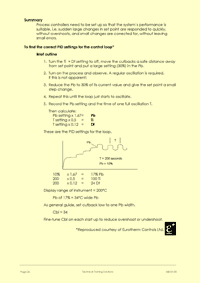 |
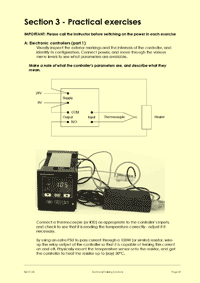 |
Page 10 of the course notes for the 3 term PID controller tuning training course, describing how the innards of a controller may differ depending on its manufacturer specification and the sub-cards loaded |
Page 26 of the course notes for the 3 term PID controller tuning training course, which puts forward the tuning philosophy advocated by Eurotherm for their controllers |
Page 31 of the course notes for the 3 term PID controller tuning training course, which introduces one of the practical exercises - this one gets the candidates to build a temperature control system using a controller with time proportioned relay outputs to develop variable output power |
We begin the practical exercises by getting the candidates to power-up a controller (candidates use a range of controllers on the course) and ensure that it is reading correctly. Candidates correct configuration and calibration errors, referring to manufacturers' manuals under the guidance of our instructor. Candidates then build a simple closed-loop temperature control system, using a controller with relay outputs and thermocouple inputs. (Candidates configure the controllers for time-proportioned relay outputs so that variable power control is possible.) Once a functional system is achieved, candidates tune the loop so that the system's dynamic response is good. They are shown how auto-tuning is activated and they can then contrast and compare this with the advantages and disadvantages of manual tuning.
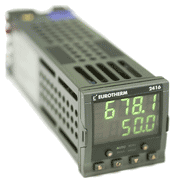 |
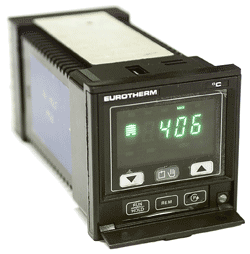 |
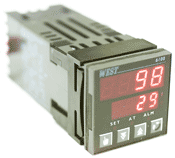 |
One of the Eurotherm controllers used on the 3 term PID controller tuning training course |
One of the Eurotherm controllers used on the 3 term PID controller tuning training course |
One of the West controllers used on the 3 term PID controller tuning training course |
| The first set of practical exercises are based on temperature control loops. The rigs used have a heater, the temperature of which is measured by a Pt100 connected to the controller's input. By using time proportioned relay outputs the controller is able to bring the heater to various target temperatures. The candidates expose this system to various step changes and we can then apply what they've learned theoretically to the practical business of making sure that step transitions are critically damped by tuning the three term parameters to suit the system's dynamics. |
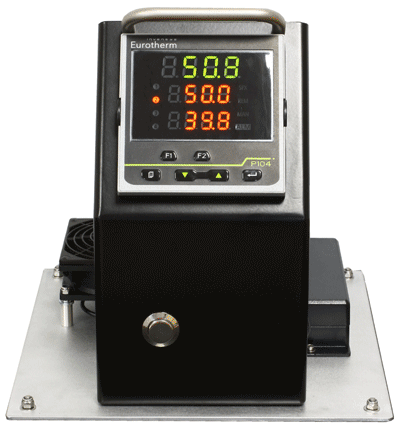 |
The next set of practical exercises are based on flow control loops. We connect controllers with 4 to 20mA inputs and outputs to our specially-designed flow rigs, configuring and calibrating them as necessary. Candidates then tune these systems so that their dynamic behaviour is good. We use a range of flow rigs (each designed to require different tuning parameters) to demonstrate the alternative methods of system control used in industrial systems; electronic variable-speed drives, electrical control valves and air control valves.
| One of the flow rigs used on the 3 term PID controller tuning training course: This one uses an air powered control valve | 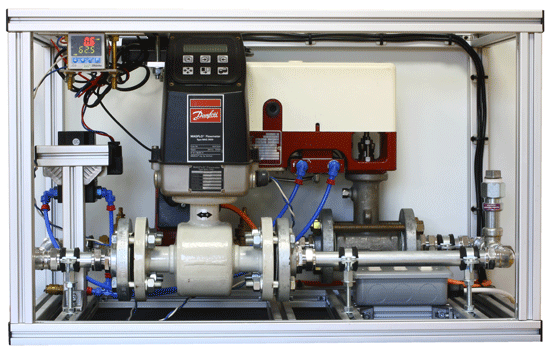 |
| One of the flow rigs used on the 3 term PID controller tuning training course: This one uses an inverter drive controlling a variable speed electrical pump | 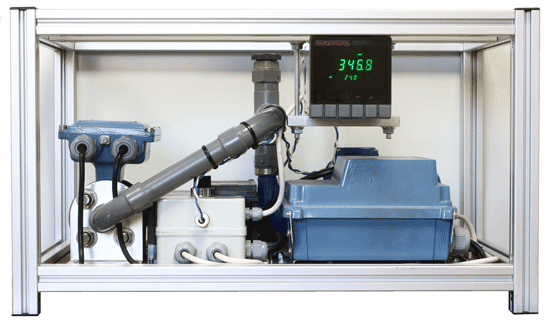 |
| One of the flow rigs used on the 3 term PID controller tuning training course: This one uses an electrical control valve | 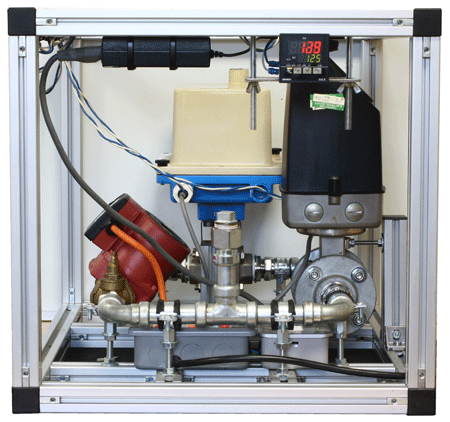 |
| One of the flow rigs used on the 3 term PID controller tuning training course: This one uses an inverter drive controlling a variable speed electrical pump | 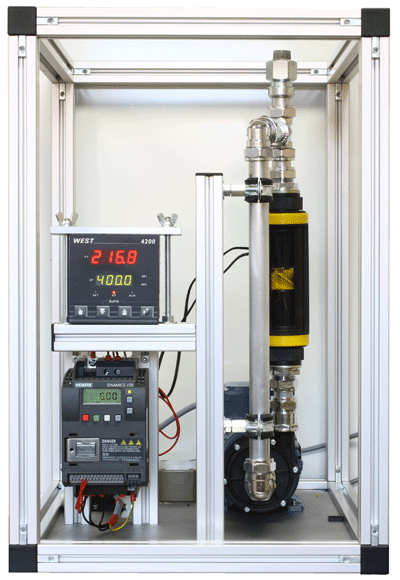 |
The above exercises generate all the evidence we need to be confident that they have achieved the skills-based course objectives. We conclude with a short multiple choice assessment paper to ensure that they have understood the knowledge based objectives of the course.
If you would like to see some of the equipment used on the 3 term (PID) controllers course for yourself, then please call us to arrange a visit to our offices in Kent. Alternatively, we can visit you anywhere in the British Isles.
